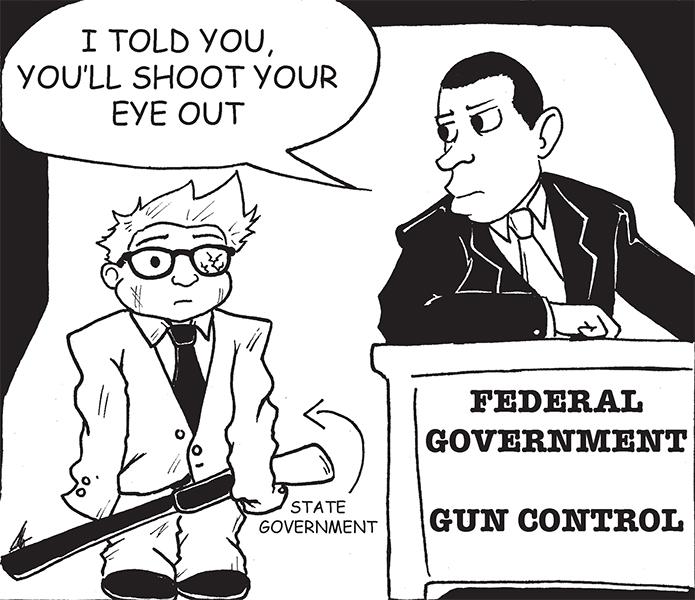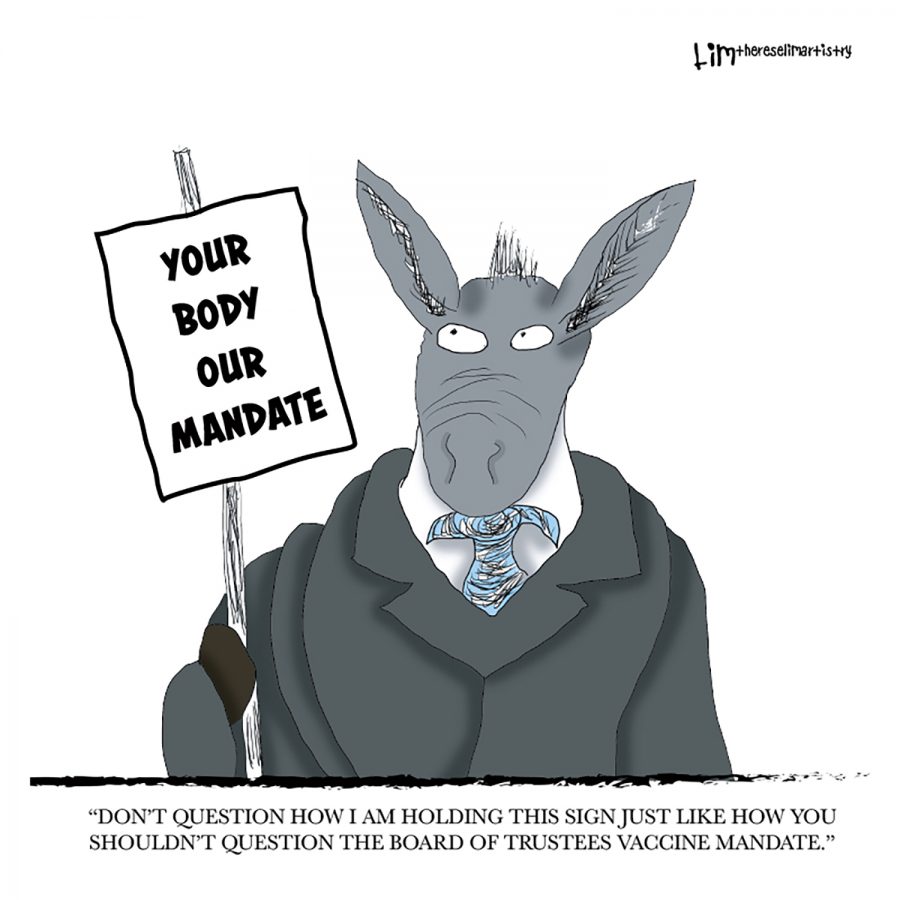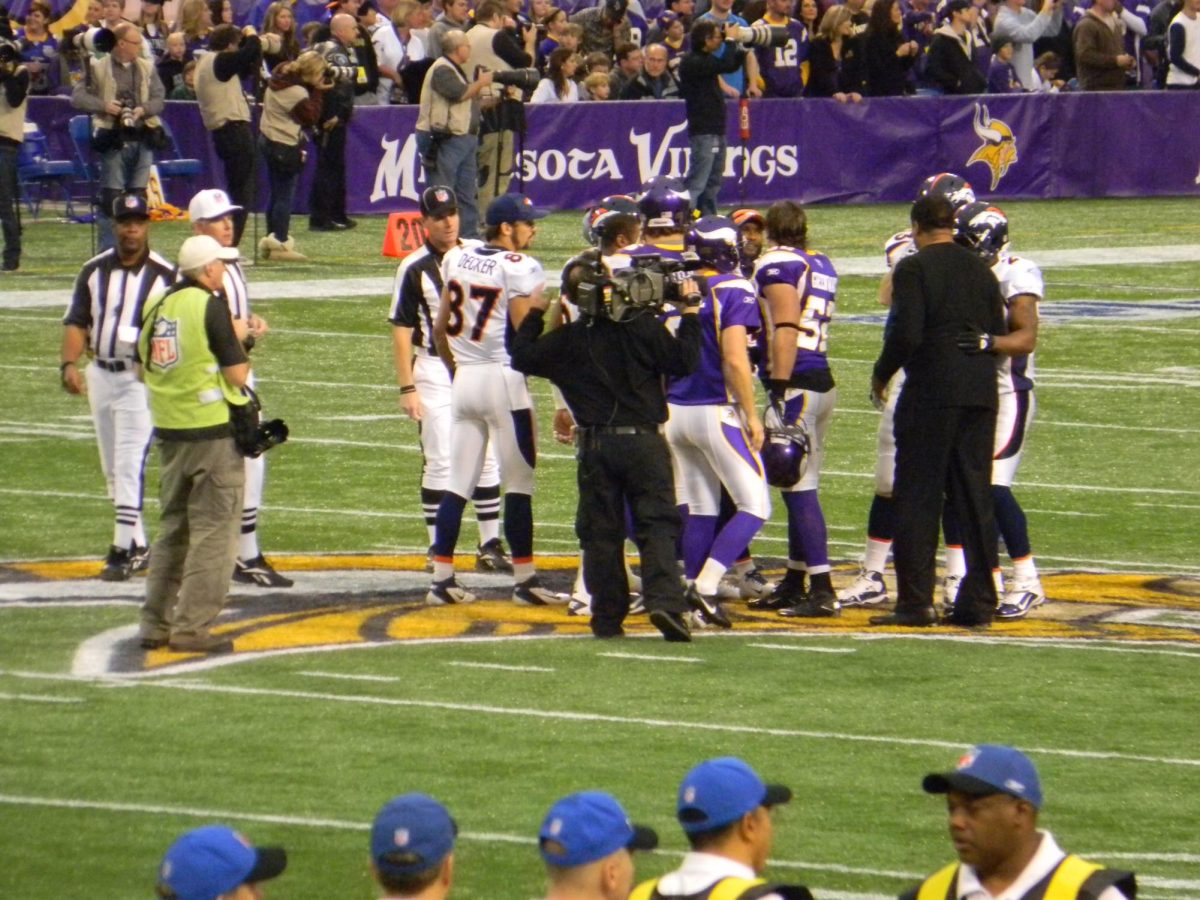In 2015 alone, there has been a total of 264 mass shootings according to Independent.
The answer to all this? “Stuff happens, ” as Jeb Bush so candidly blurted out to a group of Republican voters, he said that there really isn’t much anyone can do about these mass shootings.
There are 51 constitutions in the United States, one for every state and one for the entire country.
If a state constitution challenges the federal constitution, the federal one comes out on top.
So why isn’t the federal government hard-hitting on gun-laws in Congress?
Background checks at the state level are not enough to stop the rapidly growing numbers of mass shootings and the federal government has to put its foot down.
According to New York magazine, Minority Leader Henry Reid said, “One thing is clear, to pass background checks we need Republicans to stop acting as puppets of the National Rifle Association [NRA].”
The NRA is supported financially by gun manufactures, according to NPR.org.
Money talks.
And when it comes to writing legislation and laws, without a doubt the NRA has something to do with it.
It doesn’t want to hurt the gun manufacturers, that’s just bad for business of course, and less money from gun manufacturers means less leverage.
Senator Dick Durbin, minority whip, complained to NY magazine that there is a “death grip” that the NRA has in Congress.
Going to war with the NRA and the Gun Owners of America [GOA] is a sure loss.
However, two police officers from Milwaukee found the Achilles Heel.
Officer Bryan Norberg and former officer Graham Kunisch along with city officials successfully sued Badger Guns shop for negligence after a gunman obtained a semi-automatic pistol from a straw buyer, a buyer that bought the gun but doesn’t own it, and shot the two police officers in the face, according to The Atlantic.
Now, obviously they didn’t directly sue the NRA and the GOA, but the case is a rarity given the fact that Protection of Lawful Commerce in Arms shields the industry.
The law passed in 2005 states that lawsuits against the industry put a burden on the business.
The industry states that the federal, state, and local levels are already heavily regulated by the Gun Control Act of 1968, the National Firearms Act and the Arms Export Control Act.
The National Firearms Act is an imposition of tax to the industry putting the price for importers and manufacturers at $1,000 per year and the price for dealers at $500 per year.
So in defense of the NRA it states that by paying yearly taxes it is heavily regulated already.
Produce import tax to the United States according to U.S. Customs and Border Protection states that tax will not exceed $485 nor shall it be lower than $25, and that per shipment, it costs $2 to $9.
Import tax is an obstacle many companies have to already abide to, so it is futile for weapons manufacturers to say that tax is a heavy regulation.
Federal government has to allow lawsuits to stand in the Supreme Court.
It’s a strong solution that can help in having the NRA lobby not against gun control, but work together so that the laws actually work.
A mother having to hug her child for the last time before going to school obviously isn’t enough to have Congress and pro-gun activists stand for change, money finds its way in the process.
So hit them where it hurts.
The more lawsuits filed against gun manufacturers on a basis of negligence can help Congress finally put the heat on gun laws.





















